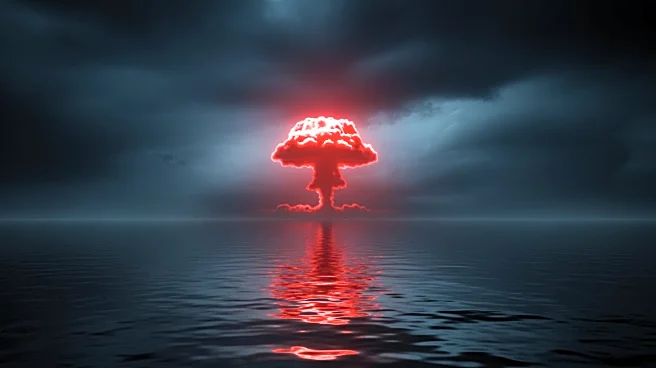What's Happening?
Chinese state media has called for nuclear strikes on Japan following remarks by Japanese Prime Minister Sanae Takaichi regarding Taiwan. Takaichi suggested that Chinese threats to Taiwan also pose a threat to Japan, potentially involving a Japanese military
response. In response, a Chinese diplomat, Xue Jian, made a threatening statement against Takaichi. The Chinese media outlet Gunacha, controlled by the Communist Party of China, proposed a plan involving 72 nuclear bombs to deindustrialize and demilitarize Japan. The plan outlines three phases targeting military, industrial, and infrastructure sites, including the US Yokota Air Base and major Japanese corporations like Toyota and Sony.
Why It's Important?
This development highlights escalating tensions in East Asia, particularly concerning Taiwan's status and regional security dynamics. The aggressive rhetoric from Chinese state media underscores the potential for increased military conflict in the region, which could have significant implications for global security and economic stability. Japan, a key U.S. ally, plays a crucial role in the balance of power in the Asia-Pacific. Any military conflict involving Japan could draw in the United States and other allies, potentially leading to a broader international crisis. The situation also raises concerns about nuclear proliferation and the risks associated with nuclear threats.
What's Next?
The international community is likely to closely monitor the situation, with potential diplomatic efforts to de-escalate tensions. Japan may seek to strengthen its defense capabilities and alliances, particularly with the United States, to deter potential aggression. The U.S. and other allies might increase diplomatic pressure on China to refrain from aggressive actions and rhetoric. Additionally, there could be discussions within international forums about the implications of nuclear threats and the need for arms control measures.
Beyond the Headlines
The situation reflects broader geopolitical shifts, with China asserting its influence in the region and challenging the existing order. It also highlights the complex interplay between national sovereignty, regional security, and international diplomacy. The aggressive stance by Chinese media could be seen as part of a larger strategy to intimidate regional actors and assert dominance over Taiwan. This development may also influence public opinion in Japan and other countries, potentially leading to increased support for military preparedness and alliances.
















